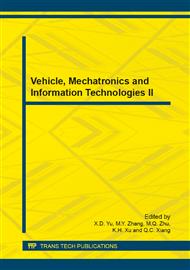p.1963
p.1967
p.1972
p.1977
p.1981
p.1987
p.1995
p.2000
p.2004
A Novel Compiler Assisted Approach for Issue Queue Power Reduction
Abstract:
Superscalar processors contain complex control logic in order to extract sufficient instruction level parallelism (ILP). The issue logic is one of the main sources of power dissipation in current superscalar processors. It has been estimated that up to 30% of the energy consumed by a processor is in the issue logic. This paper presents a novel compiler assisted approach to power reduction where we use compiler analysis to pass information to the processor about the number of entries needed, allowing the processor to resize the issue queue dynamically which limit the number of instruction dispatched and resident in the queue reduces the energy consumption without adversely affecting performance. Compared with hardware scheme, our approach is simpler faster and saves more energy. Using the approach we achieve 43.3% dynamic and 28.5% static power savings.
Info:
Periodical:
Pages:
1981-1986
Citation:
Online since:
March 2014
Authors:
Keywords:
Price:
Сopyright:
© 2014 Trans Tech Publications Ltd. All Rights Reserved
Share:
Citation:


